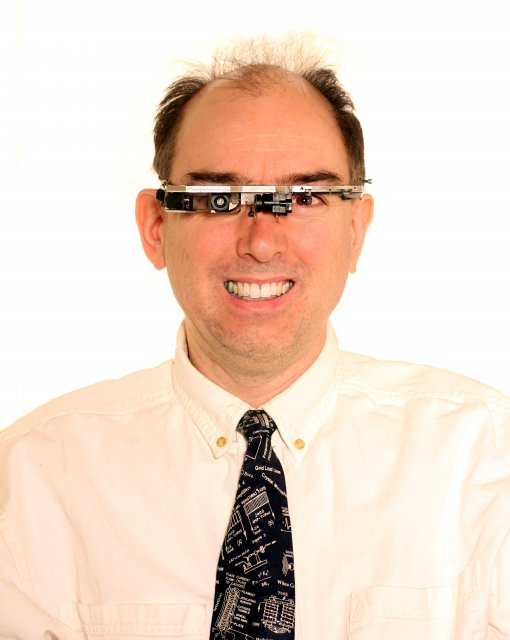I’ve just witnessed the future and let me tell you, it is going to blow your mind. It’s a future where circuit-filled blankets talk to sensor-controlled curtains, doctors are robots and, oh, did I mention we’re all cyborgs too?
At least, this is the vision painted by some incredible speakers at this year’s TedXToronto.
One of the largest independently organized Ted Talk conferences in Canada, TedXToronto successfully wrapped up its fifth year yesterday. The one-day event provided a platform for some amazingly talented Canadians to share their stories and ideas to a crowd of nearly 1,000 people at the Royal Conservatory of Music.
Among the speakers this year were three visionaries who are responsible for shaping the connected future we are just starting to become familiar with. Leaders in wearable computing, robotics and the internet of things all took the stage to illustrate their ideas on technology’s impact on our future.
The first to take the TedXToronto stage was Director of Urban Design at University of Toronto Rodolphe el-Khoury. El-Khoury passionately depicted a world where everything is connected – you, your clothing and even the buildings around you. He sees a time when “your home is your computer” and buildings are connected to a network which turns everything in the physical world into the new digital playground. “Up until now, web developers have been creating a virtual world on the web. It’s my turn now. I am finally getting a piece of the action,” El-Khoury proudly told the crowd.
El-Khoury presented a studio apartment concept which made use of “robo-walls” – a modular wall system which robotically moves to create room divisions. This smart system would connect to your smart devices to access your personal schedule and preferences to create the rooms you need at different times of the day.
This concept exemplified the qualities he believes all future environments will have. The ability to sense, analyze, communicate and socialize. For el-Khoury, the inanimate world will come to life through the internet of things.
Introduced as the father of augmented reality and the granddaddy of Google Glass, the next speaker to take the stage was Dr. Steve Mann. Whereas other speakers spoke about the future, Mann’s digital eye made the Professor at University of Toronto look like he was from the future.
Mann walked us through his history with wearable technology which officially started back in 1978 when he strapped a computer on his back and created a digital eyepiece out of old TV camera parts and rabbit ears. “Oh and back then I had to create my own wireless network since we didn’t have cell towers like we do now” he explained.
As perhaps the only person in the world who has lived with wearable computing for decades, Mann’s stories about the societal implications around his EyeTap device are highly applicable, especially as devices like Google Glass are about to hit the market next year.
One of Mann’s major struggles with EyeTap has been with authorities seeing his recording device as a threat. This has caused him to study the dynamic between surveillance, cameras used by authorities to watch over people, and what he has coined sousveillance, cameras worn by people to watch back.
To prepare us for the onslaught of wearable recording devices, Mann has created what he calls a “Veillance Contract – an integrity protocol for the cyborg age”. This contract would ensure that all parties are empowered record their environment. More importantly it would make persons who prohibit recording have their side inadmissible in a court of law.
Dr. Ivar Mendez may not be a cyborg but he moonlights as a robot. Mendez performed the first long distance telementoring neurosurgery in the world. And he did this by controlling a robot lovingly called Rossi.
Mendez uses remote presence devices, or robots, to meet and discuss cases with fellow medical practitioners from all around the world and also mentor on-site staff. This technology allows him to deliver health care to underserviced populations from his office in Halifax. He believes that this technology will “save countless lives by taking away the barriers of distance and time”.
While on stage at TedXToronto, Dr. Mendez connected to Rossi robots in Nain, Labrador and Saskatoon, Saskatchewan demoing how the robot can move about and talk to the people it encounters. He also illustrated Rossi’s extreme zooming capabilities and the robot’s ability to dock itself to charge for further use.
El-Khoury, Dr. Mann and Dr. Mendez all have a couple of things in common. They all optimistically see a future where technology improves and betters our lives. They are all ahead of their time. And they definitely make me proud to be a Canadian.


